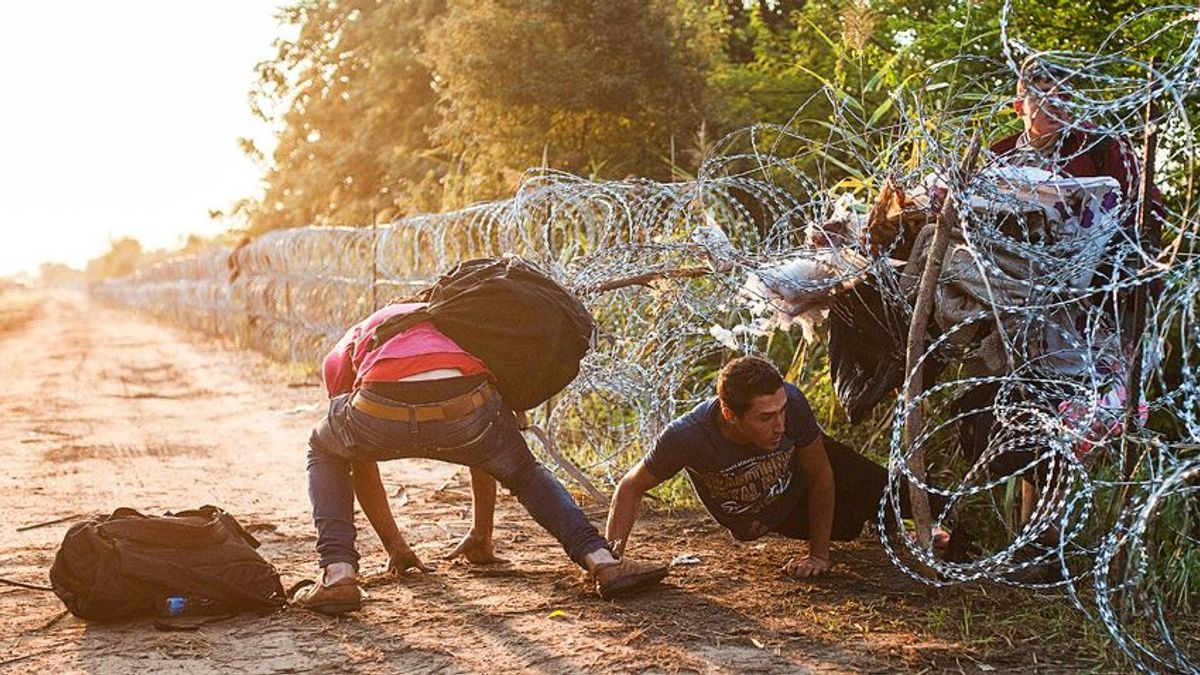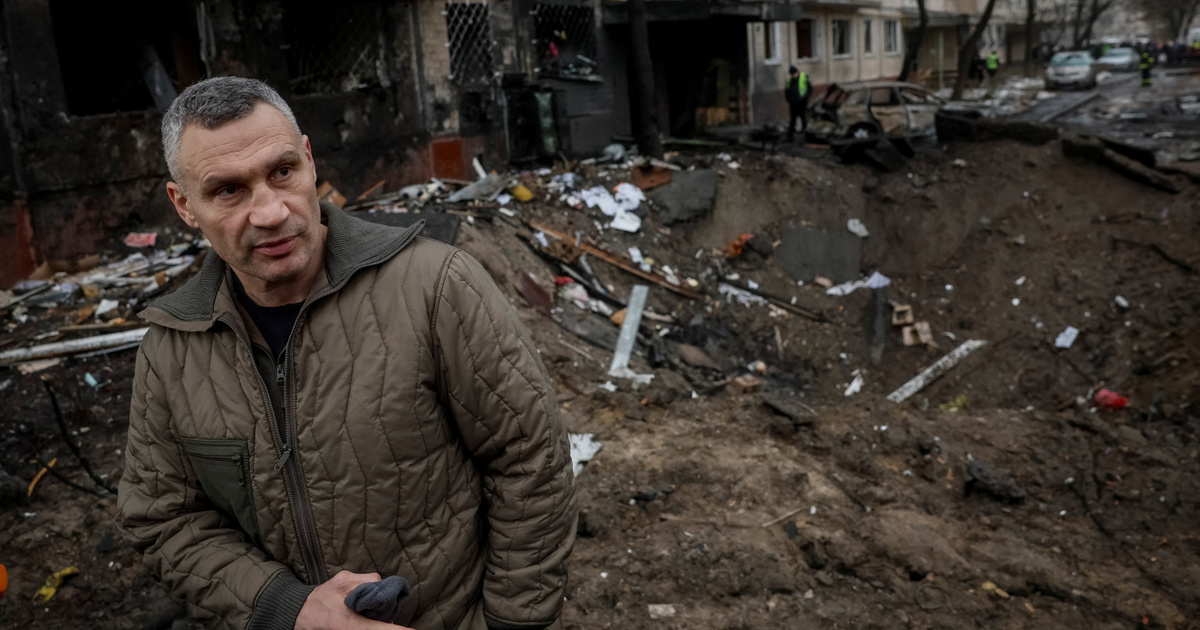Europe Express
European Union
Add to myFT
How the EU hopes to strong-arm Orbán into supporting Ukraine
Also in this newsletter: Why EU officials are satisfied with the compromise outcome of COP28
EU Council president Charles Michel and European Commission president Ursula von der Leyen will have their work cut out taming an obstinate Viktor Orbán © Xiaoyu Yin/Reuters
Henry Foy 44 MINUTES AGO.
Good morning. A warning as EU leaders meet for a summit in Brussels today: failure to agree financial and political support for Ukraine during the meetings would send a dangerous signal of “division” to the US, Kyiv’s other key ally, Sweden’s prime minister told the Financial Times.
Today, I explain how the EU’s optimists hope to strike a deal on support to Ukraine with an intransigent Viktor Orbán at the summit. And our COP correspondent sums up Europe’s stance on the conference’s outcome.
Battle plans
As EU leaders limber up for a marathon summit beset by uncertainty and division, those who hope for an unlikely compromise deal can at least take heart from one thing: the believers have a plan.
Context: The 27 leaders are tasked with deciding how much they will top up the EU’s shared budget, including a €50bn financing package for Ukraine, and agreeing to open accession negotiations with Ukraine, Moldova and Georgia. They will arrive this morning with no agreement, and Hungary’s Viktor Orbán vowing to block the Ukraine-related elements.
Green lights are possible for all three, the most optimistic EU officials and national diplomats say, if the sequencing is done right.
That means first striking a deal among 26 states — all minus Hungary — on the budget top-up and Ukraine cash, which are bundled together.
People involved in the negotiations say an agreement on that is possible, and that a new proposal circulated this morning has a chance of being adopted. It asks for less than €22.5bn in fresh cash — far lower than the €66bn initially requested months of negotiati
ons ago.
If that can be agreed early today, say by early afternoon, then the 26 can turn to Orbán as a united bloc. If they can’t, then the summit could descend into a mess of multiple, simultaneous arguments that continually reopen debates.
One advantage of bundling the budget top-up with the Ukraine money is that Orbán (or any other leader) knows blocking Kyiv’s cash will also block extra cash for areas they are keen on, such as immigration.
On Ukraine’s bid to open EU accession talks, the possible agreement looks simpler, if something of a fudge. Most are shooting for a two-step solution with an agreement to start the process (what Ukraine wants), but including conditions that must be met before a review in March that could derail the process (what Orbán wants).
Orbán offered some succour to optimists last night, saying he was against “Ukraine’s swift EU entry”, after months of saying he was against it altogether. Perhaps the €10.2bn in EU funds his government got access to yesterday evening softened him up after all.
Most note that the longest-serving leader around the summit table knows how to play the game of sabre-rattling and veto-threatening, but also when to cut a deal. “It’s not about finding a solution for Hungary,” said one EU diplomat, wearily. “But finding a solution for Ukraine.”
European Union
Add to myFT
How the EU hopes to strong-arm Orbán into supporting Ukraine
Also in this newsletter: Why EU officials are satisfied with the compromise outcome of COP28
EU Council president Charles Michel and European Commission president Ursula von der Leyen will have their work cut out taming an obstinate Viktor Orbán © Xiaoyu Yin/Reuters
Henry Foy 44 MINUTES AGO.
Good morning. A warning as EU leaders meet for a summit in Brussels today: failure to agree financial and political support for Ukraine during the meetings would send a dangerous signal of “division” to the US, Kyiv’s other key ally, Sweden’s prime minister told the Financial Times.
Today, I explain how the EU’s optimists hope to strike a deal on support to Ukraine with an intransigent Viktor Orbán at the summit. And our COP correspondent sums up Europe’s stance on the conference’s outcome.
Battle plans
As EU leaders limber up for a marathon summit beset by uncertainty and division, those who hope for an unlikely compromise deal can at least take heart from one thing: the believers have a plan.
Context: The 27 leaders are tasked with deciding how much they will top up the EU’s shared budget, including a €50bn financing package for Ukraine, and agreeing to open accession negotiations with Ukraine, Moldova and Georgia. They will arrive this morning with no agreement, and Hungary’s Viktor Orbán vowing to block the Ukraine-related elements.
Green lights are possible for all three, the most optimistic EU officials and national diplomats say, if the sequencing is done right.
That means first striking a deal among 26 states — all minus Hungary — on the budget top-up and Ukraine cash, which are bundled together.
People involved in the negotiations say an agreement on that is possible, and that a new proposal circulated this morning has a chance of being adopted. It asks for less than €22.5bn in fresh cash — far lower than the €66bn initially requested months of negotiati
ons ago.
If that can be agreed early today, say by early afternoon, then the 26 can turn to Orbán as a united bloc. If they can’t, then the summit could descend into a mess of multiple, simultaneous arguments that continually reopen debates.
One advantage of bundling the budget top-up with the Ukraine money is that Orbán (or any other leader) knows blocking Kyiv’s cash will also block extra cash for areas they are keen on, such as immigration.
On Ukraine’s bid to open EU accession talks, the possible agreement looks simpler, if something of a fudge. Most are shooting for a two-step solution with an agreement to start the process (what Ukraine wants), but including conditions that must be met before a review in March that could derail the process (what Orbán wants).
Orbán offered some succour to optimists last night, saying he was against “Ukraine’s swift EU entry”, after months of saying he was against it altogether. Perhaps the €10.2bn in EU funds his government got access to yesterday evening softened him up after all.
Most note that the longest-serving leader around the summit table knows how to play the game of sabre-rattling and veto-threatening, but also when to cut a deal. “It’s not about finding a solution for Hungary,” said one EU diplomat, wearily. “But finding a solution for Ukraine.”




